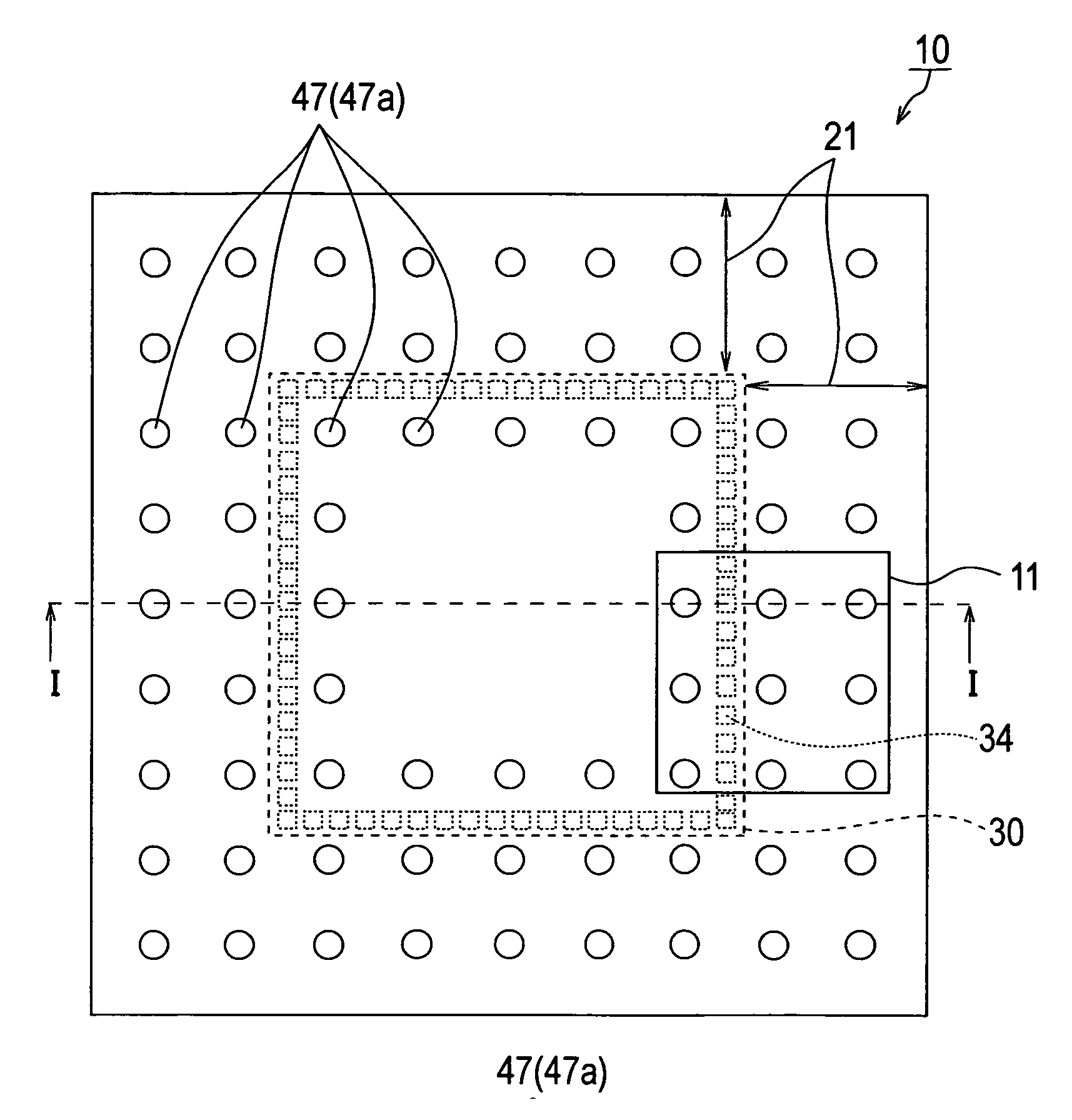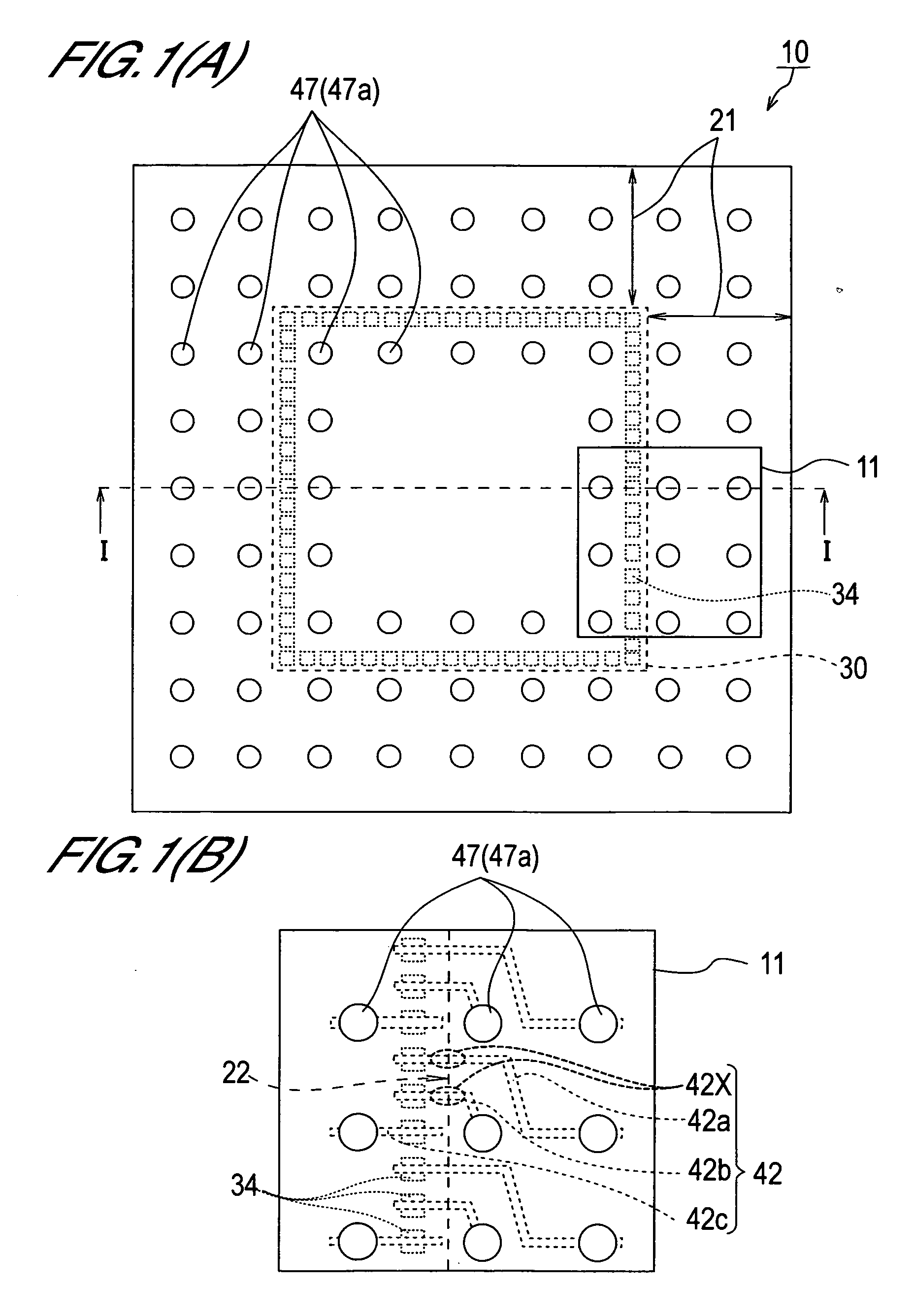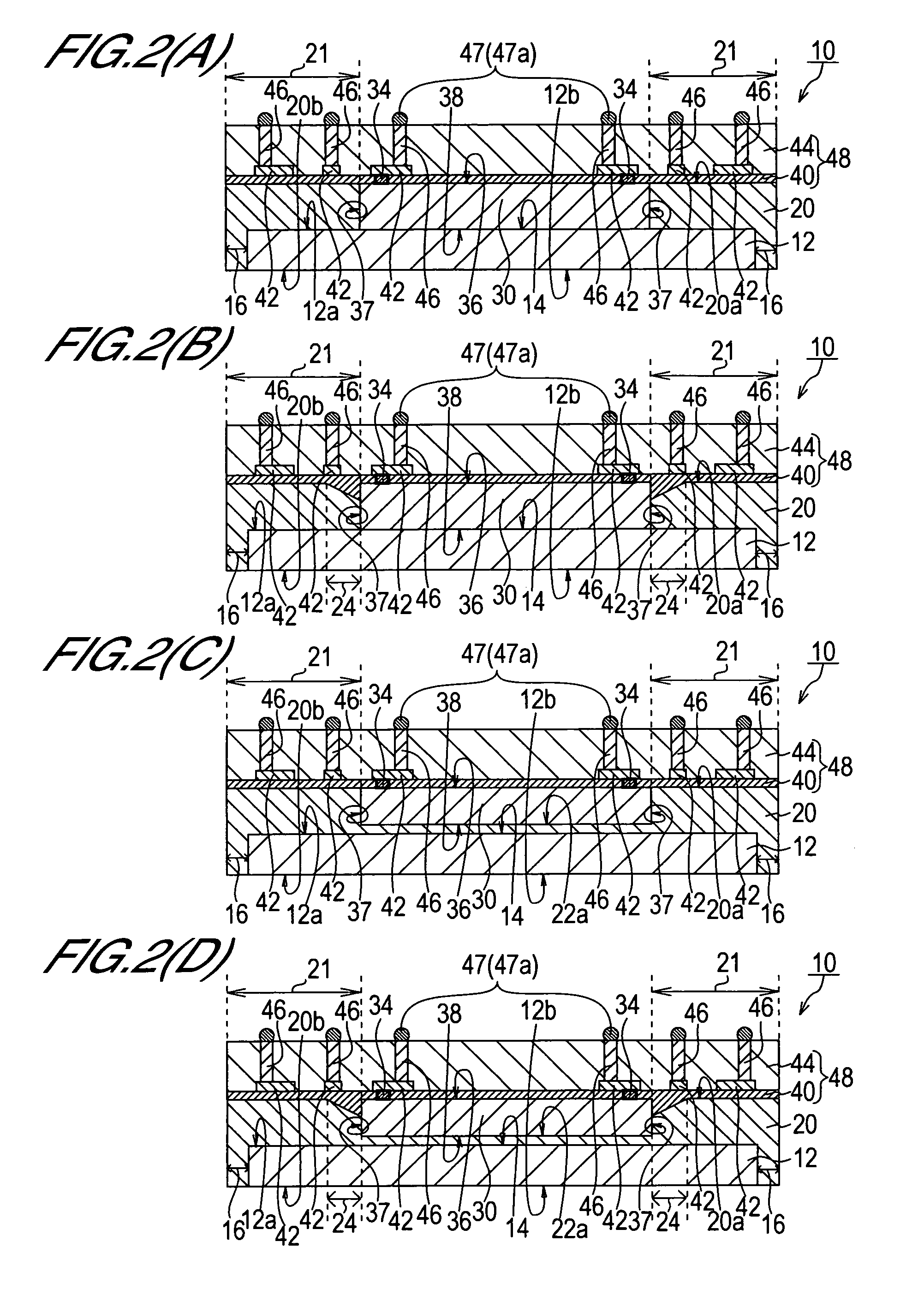Semiconductor device with improved design freedom of external terminal
a technology of external terminals and semiconductors, applied in the field of semiconductor devices, can solve the problems of difficult to form 300 external terminals on the surface area of a 7 mm7 mm wcsp, severe restriction of design freedom, and large volume of external electrodes, etc., and achieve the effect of compactness, and increasing the number of functions
- Summary
- Abstract
- Description
- Claims
- Application Information
AI Technical Summary
Benefits of technology
Problems solved by technology
Method used
Image
Examples
Embodiment Construction
[0115] Embodiments of this invention will be described below with reference to the drawings. Note that in the drawings, the form, magnitude, and positional relationships of each constitutional component are merely illustrated schematically in order to facilitate understanding of this invention and no particular limitations are placed on this invention thereby. Further, although specific materials, conditions, numerical value conditions, and so on are used in the following description, these are merely one preferred example thereof and therefore do not place any limitations on this invention. It is to be understood that similar constitutional components in the drawings used in the following description are allocated and illustrated with identical reference symbols, and that duplicate description thereof has occasionally been omitted.
[0116] A constitutional example of a semiconductor device of this invention will be described with reference to FIGS. 1 and 2. FIG. 1(A) is a plan view ...
PUM
 Login to View More
Login to View More Abstract
Description
Claims
Application Information
 Login to View More
Login to View More - R&D
- Intellectual Property
- Life Sciences
- Materials
- Tech Scout
- Unparalleled Data Quality
- Higher Quality Content
- 60% Fewer Hallucinations
Browse by: Latest US Patents, China's latest patents, Technical Efficacy Thesaurus, Application Domain, Technology Topic, Popular Technical Reports.
© 2025 PatSnap. All rights reserved.Legal|Privacy policy|Modern Slavery Act Transparency Statement|Sitemap|About US| Contact US: help@patsnap.com



